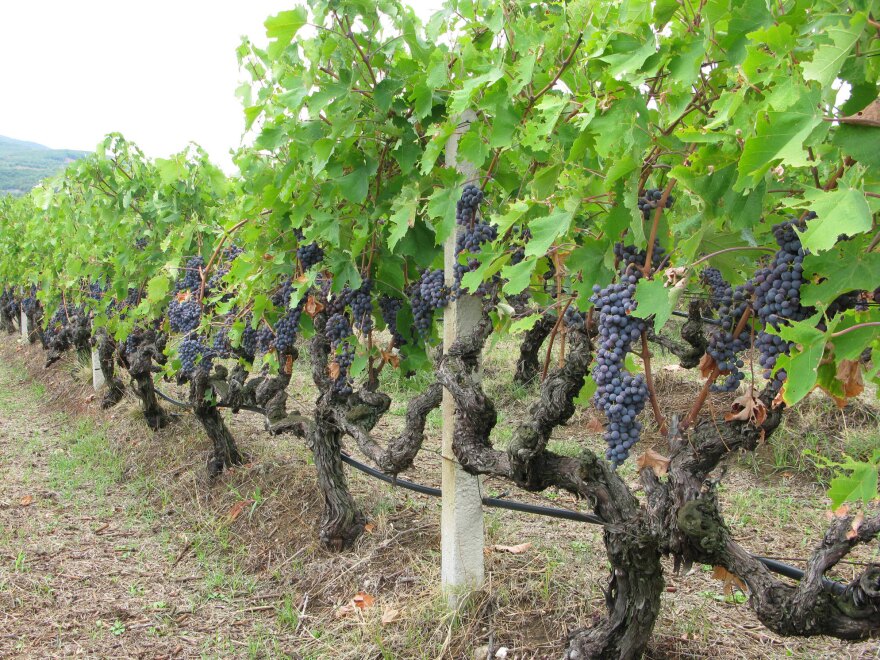When the economic crisis erupted in Greece and the bottom fell out of the domestic wine market, the Kir-Yianni vineyard outside picturesque Naoussa decided to adapt. Like other wineries in Greece, it has increasingly tapped the export market, successfully marketing and selling wine in Europe, the United States and even China.
"If you ask me, this crisis has been good for us," says Stellios Boutaris, the son of the company's founder. "It's going to make us stronger."
But there's one big problem that poses a threat, even to the most competitive Greek companies right now, he says. It's become virtually impossible to borrow money in Greece.
"There's no credit. How can you do business without credit?" he asks.
Greek banks have little money to lend out, while foreign lenders, which once flooded Greek businesses with loan offers, no longer want to do business in the country. The possibility that Greece might leave the eurozone, however slim, makes lending money there too risky.
It's a huge challenge for companies like Kir-Yianni, which have to import virtually all of the materials and equipment they use in their production. Kir-Yianni buys bottles from Italy, paper from Turkey, barrels from France and cork from Portugal.
"Unfortunately, Greeks are very much traders, not producers," Boutaris says. "It's crazy, when there's not a single glass factory in Greece. It makes you upset that you have to bring in bottles from Italy."
Because credit is so tight, companies like Kir-Yianni have to pay cash for virtually everything they buy. In a capital-intensive business, where growing times stretch for years, that can be an enormous challenge. Boutaris has had to delay projects, like building a new wine cellar.

"You're squeezed from both sides," he says. "You have trouble collecting money from the markets, because some of the wholesalers have gone out of business, so it's very, very difficult to sell. So you try to get cash from them, but not everyone can afford it."
Meanwhile, he says, "your suppliers want to be paid in cash. So really, the circle has completely broken. The chain of business has completely broken."
It's a huge change from a few years ago, when a loan was as easy to get as a suntan in Greece. Successful Greek business owners were regularly flooded with offers of credit. Banks "would beg you" to borrow money, says Olga Panagopoulou, financial manager at Conex, a canned fruit company in Athens. "They would say, 'You just have to pay 3 percent. What's 3 percent for you?' "
Conex ended up borrowing money to upgrade its factory, which will produce 27,000 tons of canned peaches this year, exporting virtually everything it produces.
The credit crunch has greatly complicated life for Conex.
The company has a narrow window of time each year to process and can fruit, and needs tons of supplies, everything from sugar and citric acid, to tin cans and fuel oil. But canned fruit can sit on store shelves for years, so customers are slow to take delivery of their orders and even slower to pay what they owe.
In the past, Conex could borrow money to get by until it was paid for what it produced. But today, the credit flow has run dry.
But now that the banks won't lend, Conex has had to press its customers to pay what they owe sooner. It has also tried to persuade its shareholders to put more money into the company.
The company laid off some permanent employees over the years, but it can't afford to lose too many workers, especially during canning season, Panagopoulou says.
Conex's troubles are ironic, because for the most part the company is quite competitive. With production down in parts of the United States, demand for canned fruit is very strong right now, she says. But without credit, it has difficulty filling the orders it gets.
"Greece can export enough, and more," Panagopoulou says. "But the problem is not to export or produce. The problem for Greece is to find the funds in order to produce. This is the real problem, and the big problem now."
Copyright 2021 NPR. To see more, visit https://www.npr.org.




